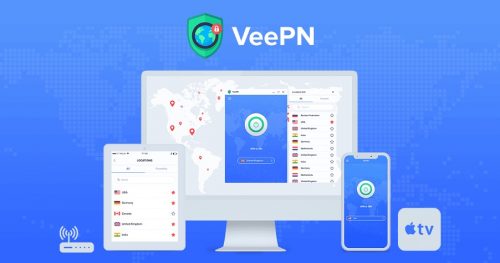Recently people had to keep all their contacts in business card binders. Email campaigns were a real challenge, where you had to think not about communication strategies but about the ways to reach your prospects and regular customers. Now, all businesses, even the smallest ones, can benefit from modern database software that is able to work off your hands and offer more opportunities to run your marketing campaigns.

Below you’ll find the most useful tips to set up your customer database marketing with fewer hurdles. Follow them, and enjoy the result!
Software that will help you with your marketing goals
The first thing you should start with is to ensure that you have all the necessary database marketing tools. There are several criteria to follow when choosing one solution that suits your requirements the best:
- User interface;
- Usability;
- Functionality;
- Security;
- Integrations;
To reach your goals with some specific tools, you need to define them. For example, you may ask yourself: “Do I want my customers to know whats my real IP?” Or “What ROI I want to get at the end of this campaign?” When you know these answers, it is easy to compare your expectations to the promises of software. However, there is a basic list of tools you’ll definitely need to consider.
CRM system
CRM stands for customer relationship management, and it is one of the most useful database marketing software programs you can use. However, there are a lot of various vendors with their pros and cons, so it is not always easy to find the best option.
The CRM system is necessary to keep all your contacts together. Some tools also provide you with an opportunity to automatize marketing, sales, and service processes, so explore the offers attentively in order to understand what exactly can help you. Using modern CRM, you shouldn’t ask yourself whats my VPN location since most solutions are provided in the SaaS model these days, and your current country and time zone don’t matter.

VPN
It may sound not so obvious, but you definitely need a VPN if you want to make your database marketing really successful. It is software that helps you to change IP address, and get access to some websites that are blocked in your current location. If you’re wondering what’s my IP VPN is, you can just open the application and check it.
Download an application or a Chrome extension to enjoy all the opportunities. One more reason to try at least a free trial is your security. Your Internet provider and any third parties don’t have any access to your data when you use VeePN or similar tools. So, don’t worry that your campaign will fail because of some geographic or other issues.
Email Marketing Tools
If you want to communicate with your customers efficiently, you need to have decent email software that is developed for these purposes. For example, just with the Gmail application, you can launch a solid email marketing campaign, and you need to think whats my real IP all the time. When you have the appropriate software, you can set up a huge newsletter for different audiences, control results, design templates, etc.
To-Do Lists Tools
Now, when you have all customer-focused software and don’t need to worry whats my VPN location, you can download the to-do list application. It is necessary if you want to plan your activities in advance. You can work on online boards along with your team, create tasks, and control the processes. Such tools are necessary because they help you to control all projects and plan new ones.
3 Cores of The Efficient Database Marketing

It is impossible to say that there is only one efficient way to gather and analyze customer data. Most marketers experiment trying to find their own approach, the one that helps the concrete company to achieve its goals. However, regardless of your business, channels of communication, and long-term strategies, there are 3 core principles you should follow to succeed.
1. Relevant data
You can’t get any truly unique insights without relevant and accurate data on the people that are already your customers. If you work with your suggestions only, it will never work. How will you come up with really relevant offers, launch demanded products, create personalized messages if you don’t know who your customers are and what do they expect of your company?
For instance, if you run a little antique shop or a solid financial advice company, you work with different audiences. The first one may prefer a bit outdated approaches, e.g, they can really wait until you call them with a personal offer. But the second one is “high-touch”, and you need to launch your marketing campaign appropriately to support your expectations.
That’s why it is not enough to have their names, phones, and emails. Sometimes you should ask yourself whats my IP VPN is, conduct thorough research, and even speak to your customers to gather more insights.
2. Basic segmentation
Now, when you know that all audiences are different, and you need a customized way to treat each individual, you have to come up with at least several basic segments to understand your customers. You can segment the audience by:
- age;
- gender;
- location;
- customer type (new or regular);
- buying behavior.
For example, if you’re launching a new product, and you know that it is innovative enough and can attract a fresh audience, it would be a great idea to focus on your older customers and explain the value to the people that might not understand you.
Another good strategy is to segment people who haven’t bought your products for a long time. Or those ones who are always ready to get a discount.
3. Advanced segmentation
If you understand that it is time to go further, you can follow the advanced segmentation strategy. It depends on the sector you work with, whether it is B2B or B2C sales.
In the first case, you should segment companies based on:
- industry;
- company type;
- job title of the contact person.
Having this data, you can tailor your offer to the needs of the concrete customer.
When it comes to B2C, think about:
- customer persona;
- buyer goal setting;
- recency, frequency, and monetary value.
The main thing you should remember is that database marketing is always a process. You need to look for new insights all the time, to generate creative ideas, and be brave enough to implement them!
Interesting Related Article: “The digital marketing strategies that will open doors to your company“

